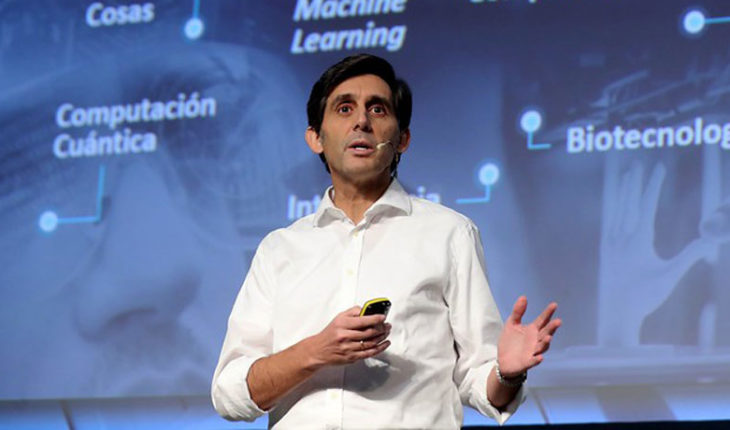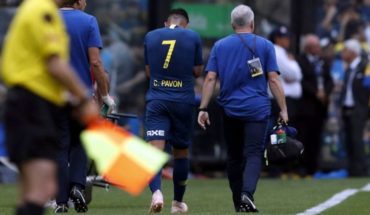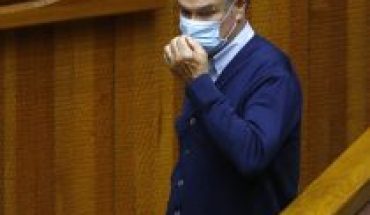Telefónica has launched on Wednesday an action plan with five measures, including focusing on Spain, Brazil, the United Kingdom and Germany; split its Spanish-american subsidiary into a single company; create two business units, Telefónica Tech and Telefónica Infra, and redefine the corporate center with changes in the structure of the company’s executive committee.
In a statement to the National Securities Market Commission (CNMV), the company notes that the implementation of all these measures will allow, among other effects, the generation of more than 2 billion additional revenue, as well as the best in two percentage points of the operating cash flow margin (OpCF) in 2022.
Telefónica’s executive chairman, José María Alvarez-Pallete, has emphasized that in the company they have imagined and designed the company that wants to be in the future and want to “start building the way to it”. In addition, it noted that geopolitical, macroeconomic and regulatory uncertainties and high competition in the sector require “increasingly demanding capital allocation”.
“In the past, low penetration of voice and data services, especially in emerging countries, ensured future growth, growing market maturity and the emergence of new competitors subject to different rules demand highly targeted strategic approaches,” he said.
In this context, Telefónica’s first step is to prioritize the bulk of its investments in Spain, Brazil, Germany and the United Kingdom, improving the supply and services offered to customers in regions it believes have “growth potential” in this new phase, so it will concentrate its resources on them.
In this line, investment will also be prioritized for the modernization and deployment of the network, as well as for the digitization of the company, which allows to improve the service and customer service and capture efficiencies.
Although at the end of the third quarter of 2019 the group was present in 14 countries, these four concentrated 218.1 million accesses (63% of the total) and 80% of revenue, gross operating income (Oibda) and operating cash flow (OpCF). Under the dependence of Telefónica’s CEO, Angel Vilá, the current responsible for these markets is maintained: Emilio Gayo (Spain), Christian Gebara (Brazil), Mark Evans (United Kingdom) and Markus Haas (Germany).
New business units
On the other hand, Telefónica Tech is constituted, a unit that will bring together digital businesses with high growth potential and that aims to be the partner that accompanies other companies in their digital transformation. Initially, three businesses will be developed in this unit: cybersecurity, IoT/Big Data and cloud.
With this new subsidiary Telefónica wants to drive the growth of these activities that, on an added basis, are already achieving turnover stakes above 30%. This unit will expand in the future if new business opportunities appear and is open to acquisitions that complement the business, as has been done in recent years.
This unit, whose CEO is José Cerdán, until now global responsible for the B2B segment in Telefónica, will be the one that delivers the value offer that the commercial teams of each country will offer to customers. In addition, it is intended to export the proposal to other countries where Telefónica is not present through agreements with other companies.
It also creates Telefónica Infra, which includes its 50.01% stake of Telxius as the first asset, to bring together Telefónica’s shareholdings in communications infrastructure vehicles, serving third-party operators and incorporating partners.
With this unit Telefónica aims to value a “unique” portfolio of assets, focusing on the development and monetization of towers, distributed antenna systems, data centers, greenfield fiber projects or underwater cables, among others. To do this, it is open to different equity schemes (majority or minority) and to “best partners” for each of the asset types.
Guillermo Ansaldo, who has led the group’s Global Resources unit to date, will be the head of this subsidiary, which will depend on the CEO.
Division of the Latin American business
On the other hand, it will create a unit that brings together its business in all Latin American countries in which it operates except Brazil, which will have a specific and differential management team to the rest of the Group and that will have as its fundamental objective the attraction of investors and obtaining potential synergies with other market players, “with a philosophy of guaranteeing and maximizing the service that it offers to its customers”.
Telefónica points out that with this movement it initiates a strategic review of its portfolio in the region with the dual objective of modulating exposure to the region, while creating the conditions to maximize its value via growth, consolidation and possible corporate operations.
Lower business contribution in Latin America
“Our operations in Latin America were until a few years ago the engine of growth of the company. However, the particular conditions in these markets have impacted on the evolution of business, diminishing their contribution in recent years for different reasons and despite the enormous efforts of the local teams, who have always shown a strong commitment”, argued Alvarez-Pallete.
This unit will be led by Alfonso Gómez, current head of Hispam Norte, and will depend on the Directorate General of Finance and Management Control led by Laura Abasolo.
New corporate organization
Finally, the Board of Directors has decided to adapt the role and functioning of the corporate center to the new reality, which includes a modification of the structure of the group’s Executive Committee and which includes the departure of Mariano de Beer and Bernardo Quinn from executive positions.
In this way, in the new organization, will depend on the CEO, Angel Vilá, in addition to the four main countries, Telefónica Tech and Telefónica Infra, three other directorates, including those of Technology and Architecture, which will be responsible for defining the strategic technological guidelines of the group and which will be led by Enrique Blanco, who joins the executive committee.
The other two addresses are Digital Consumer, which aims to define the new models of relationship with the customer and improve their experience, and at the head of which will be Chema Alonso, currently responsible for data of Telefónica; and Business Solutions, aimed at enhancing multichannel, relationship with wholesalers and global product development B2, with José Cerdán at the helm.
In this context, a new organization of Telefónica España has been approved, which aims to further boost growth, after nine consecutive quarters of improvement of the company’s revenue in this market, while putting even more focus on the customer.





